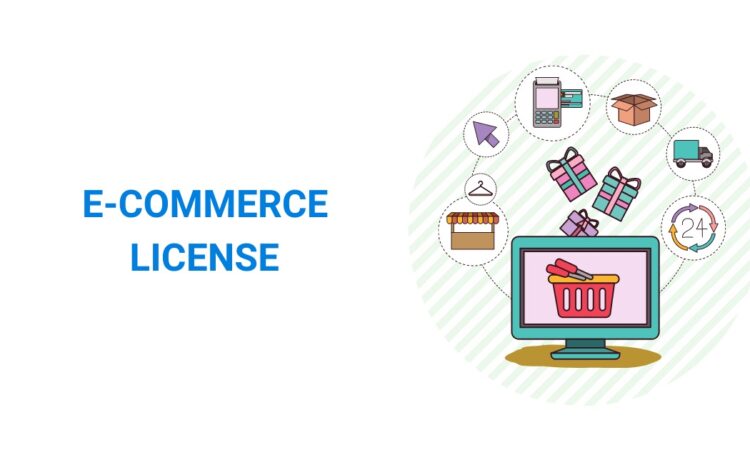
The United Arab Emirates (UAE) has established itself as a global business hub, with e-commerce playing a significant role in its economy. If you are planning to start an online business, obtaining an e-commerce license is essential. This guide provides a detailed understanding of the e-commerce license in UAE, its benefits, and the requirements for obtaining one.
What is an E-Commerce License?
An e-commerce license is a legal permit issued by the UAE government that allows businesses to sell products and services online. This license enables entrepreneurs to operate an online store, sell through marketplaces, and conduct digital transactions legally.
Key Benefits of an E-Commerce License in the UAE
1. Ability to Operate Legally
Having an e-commerce license ensures that your business complies with UAE regulations, avoiding potential fines and legal issues.
2. Access to a Wider Market
With an e-commerce license, businesses can sell products and services not only within the UAE but also internationally, reaching a global audience.
3. Flexibility to Choose a Business Model
The license allows businesses to sell through:
- Their own e-commerce website
- Online marketplaces like Amazon and Noon
- Social media platforms like Instagram and Facebook
4. 100% Foreign Ownership
For free zone businesses, an e-commerce license allows 100% foreign ownership, eliminating the need for a local sponsor.
5. Ability to Open a Corporate Bank Account
Holding an e-commerce license enables businesses to open a UAE corporate bank account, facilitating smooth financial transactions.
6. Low Operating Costs
Unlike traditional retail stores, e-commerce businesses do not require a physical storefront, reducing overhead expenses.
Requirements for Obtaining an E-Commerce License in UAE
1. Choose the Right Jurisdiction
There are two main options for obtaining an e-commerce license in the UAE:
- Mainland License (issued by the Department of Economic Development – DED)
- Free Zone License (offered by various free zones like Dubai CommerCity, Sharjah Media City, etc.)
Each jurisdiction has different regulations, costs, and benefits, so it’s essential to choose based on your business needs.
2. Define Your Business Activities
When applying for an e-commerce license, you must specify your business activities, such as:
- Online retail
- Digital services
- Dropshipping
- Marketplace selling
3. Register a Trade Name
Your business must have a unique trade name registered with the UAE authorities. The name should comply with UAE regulations and not violate any trademarks.
4. Obtain Initial Approvals
Before getting your license, you may need approvals from various authorities, depending on your business type.
5. Get an Office or Virtual Address
While physical office space is optional for e-commerce businesses, you may still need a virtual address or business center registration.
6. Apply for the E-Commerce License
Once you meet all the requirements, submit your application along with the necessary documents, such as:
- Passport copies of the owner(s)
- Visa copies (if applicable)
- Business plan (for some free zones)
- Trade name approval
7. Open a Corporate Bank Account
After obtaining your e-commerce license, you can open a corporate bank account in the UAE to handle transactions efficiently.
Cost of an E-Commerce License in the UAE
The cost of an e-commerce license in UAE varies depending on the jurisdiction.
- Mainland License: Starts from AED 10,000 – AED 15,000
- Free Zone License: Starts from AED 5,500 – AED 12,000
Additional costs may include visa fees, office rent, and other administrative charges.
E-Commerce License vs. E-Trader License
| Feature | E-Commerce License | E-Trader License |
|---|---|---|
| Eligibility | Open to UAE nationals and foreigners | Available only to UAE and GCC nationals in Dubai |
| Business Model | Websites, apps, marketplaces | Social media platforms |
| Office Space | Allowed | Not required |
| Hiring Employees | Permitted | Not permitted |
| Operating Region | UAE & international | Dubai only |
Conclusion
An e-commerce license in the UAE is essential for anyone looking to start an online business legally and professionally. It provides numerous benefits, including access to a global market, cost-effective operations, and 100% foreign ownership in free zones.
If you are planning to set up an e-commerce business, carefully evaluate the requirements and choose the right jurisdiction that best suits your needs.
